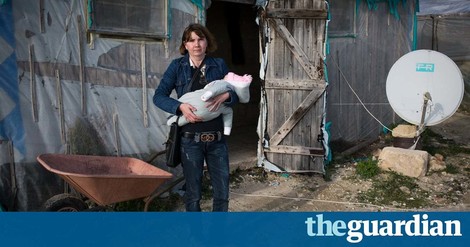Your podcast discovery platform
Curious minds select the most fascinating podcasts from around the world. Discover hand-piqd audio recommendations on your favorite topics.

piqer for: Health and Sanity Global finds
I was born in 1987 in Bucharest. I studied Psychology and Educational Sciences at the University of Bucharest. For two years I worked in a psychotherapy practice, dealing with gambling addicts. I'm an independent reporter, writing and doing video reportages mostly about social and political issues. I am currently based in Jena.
Raped, Beaten, Exploited: The 21st-Century Slavery Propping Up Sicilian Farming
About half of my friends’ parents are doing jobs in Spain or Italy, and the workforce outpour will continue as Romania stays on top of the list of Europe’s poorest countries. Recently, the fate of Romanian women who get abused by Italian farmers shook the country.
About 5000 Romanian women are working in Sicily’s province Ragusa as seasonal agricultural workers. As told by the main character of this article, the farmers visit the women’s shacks every night to rape them. They beat them, keep them in rooms without running water and heating, make them work in the heat without water, pay them less than the legal minimum wage — sometimes not at all — and, of course, they don’t give work them contracts.
The issue of forced labor and severe exploitation has been raised by a handful of human rights organisations, MPs and the victims themselves, but the Italian authorities haven’t done much to stop the abuses so far.
“In recent years, Italian exports of fresh fruit and vegetables have grown and are now worth some €366m a year. Much of this produce is grown in the 5000 farms across Ragusa province”, and Italian agriculture is relying on migrant workers, with over 100,000 people working in southern Italy.
Why, you may ask, would anyone endure such an abomination for years? Because the poverty is so extreme in some areas of Romania that the only means for survival is sometimes to work on Ragusa-like places. And the thinking goes: I can work in my country and endure the same abuses and be paid €200, or go abroad, be abused, but at least earn real money. Any maltreatment is bearable as long as it pays for their children’s education, food and clothes.
Although these abuses are becoming known to the larger public, in Romania people’s fascination for working abroad is intact in the poor regions.

Thank you. Such an important piece. Heartbreaking. No one gives them a voice. And trade unions are looking away for years.